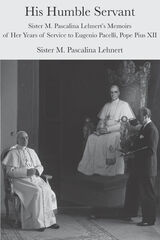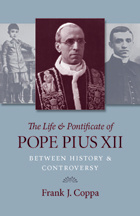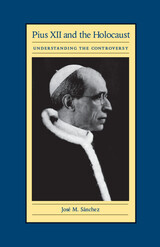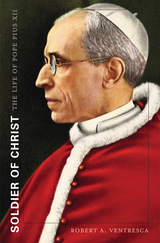
This is a personal and insightful portrait of Pope Pius XII, the memories of Sister M. Pascalina Lehnert, who served as his housekeeper for forty years. Her book, most of it written just a few months after the Pope’s death, shares insights into the person, the life, and the thinking of Pius XII, from his time as Nuncio in Munich until his death. Much of Sister’s motivation in writing this work was to correct the many distortions of fact and interpretation regarding this great pope.
This book was a best seller in the original German, as well as in the Italian and French translations. This is the first edition in English.
These reminiscences were written down at the instructions of Sister’s Superior General, but were not made known to the public until 1982, when it was published in German at the express wishes of Pope John Paul II to publish the work without any changes. So the work remained a lively, flowing account of memories and anecdotes in a simple, spontaneous style. It is a powerful and insightful account of Pius’s daily life, his treatment of those around him, and his concern for the upholding of the traditional teaching of the Church in the face of his awesome burden to lead the Church during World War II.

The mystery stories and other popular fiction of Mary Roberts Rinehart (1876–1958) brought her wealth and fame, but she was much more than a writer. She was a well-known American, respected and loved during a time when few women achieved national influence.
Her early life was conventional enough. Trained as a nurse, she met and married a physician, with whom she had three sons. She was living the stereotypical life of a young matron in Allegheny (now part of Pittsburgh), when her husband’s investments evaporated during a stock market crash. She began writing as a means to supplement the family income.
Rinehart became a prolific writer. In addition to her mysteries, she wrote serious fiction, plays, poems, magazine articles, and editorials. Her regular contributions to the <I>Saturday Evening Post</I> were immensely popular and helped the magazine mold middle-class taste and manners.
In this fascinating account of a woman ahead of her time, Cohn illuminates the tensions that pervaded Rinehart’s life. Rinehart’s commercial success conflicted with her domestic roles of wife and mother; she often endured periods of illness and depression but also pursued adventure, including a job as the first woman war correspondent at the Belgian front during World War I. Throughout, Cohn presents Rinehart as a woman of many complexities whose zest for life always prevailed.



Debates over the legacy of Pope Pius XII and his canonization are so heated they are known as the “Pius wars.” Soldier of Christ moves beyond competing caricatures and considers Pius XII as Eugenio Pacelli, a flawed and gifted man. While offering insight into the pope’s response to Nazism, Robert A. Ventresca argues that it was the Cold War and Pius XII’s manner of engaging with the modern world that defined his pontificate.
Laying the groundwork for the pope’s controversial, contradictory actions from 1939 to 1958, Ventresca begins with the story of Pacelli’s Roman upbringing, his intellectual formation in Rome’s seminaries, and his interwar experience as papal diplomat and Vatican secretary of state. Accused of moral equivocation during the Holocaust, Pius XII later fought the spread of Communism in Western Europe, spoke against the persecution of Catholics in Eastern Europe and Asia, and tackled a range of social and political issues. By appointing the first indigenous cardinals from China and India and expanding missions in Africa while expressing solidarity with independence movements, he internationalized the church’s membership and moved Catholicism beyond the colonial mentality of previous eras.
Drawing from a diversity of international sources, including unexplored documentation from the Vatican, Ventresca reveals a paradoxical figure: a prophetic reformer of limited vision whose leadership both stimulated the emergence of a global Catholicism and sowed doubt and dissension among some of the church’s most faithful servants.
READERS
Browse our collection.
PUBLISHERS
See BiblioVault's publisher services.
STUDENT SERVICES
Files for college accessibility offices.
UChicago Accessibility Resources
home | accessibility | search | about | contact us
BiblioVault ® 2001 - 2024
The University of Chicago Press









